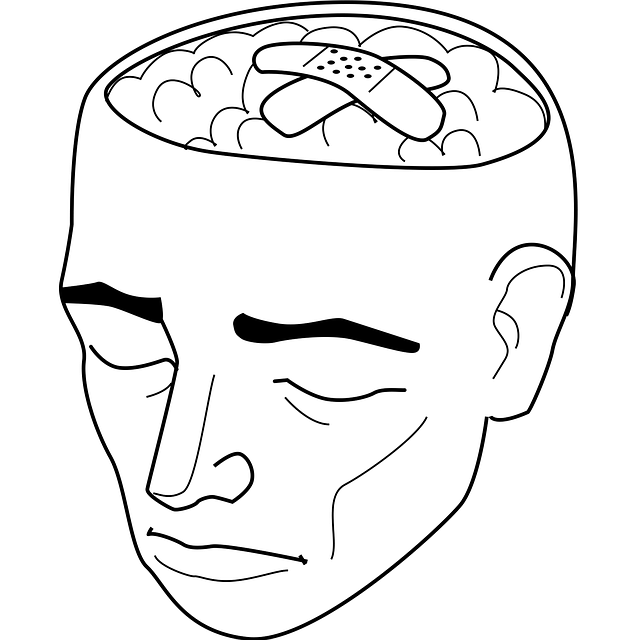Parker Abuse Survivors Therapy (PAT) offers comprehensive guides for navigating mental illness after trauma or abuse, demystifying diagnosis, treatment options, and mental health policy rights. Their resources empower individuals through education on self-care strategies, resilience building workshops, and risk management planning. PAT provides specialized therapy addressing complex emotions and coping mechanisms from traumatic events, utilizing evidence-based strategies tailored to individual needs for long-term emotional well-being.
Mental illness diagnosis and treatment navigation assistance play a pivotal role in empowering individuals towards healing. In this comprehensive guide, we explore essential aspects of understanding mental health conditions, with a particular focus on strategies within the realm of Parker Abuse Survivors Therapy (PAT). PAT offers tailored approaches to navigate challenges, facilitating effective treatment and fostering resilience. By delving into these sections, readers gain valuable insights into their healing journey, ultimately enhancing their ability to embrace well-being.
- Understanding Mental Illness Diagnosis: A Comprehensive Guide for Survivors
- The Role of Navigation Assistance in Facilitating Effective Treatment
- Parker Abuse Survivors Therapy: Strategies for Overcoming Challenges and Embracing Healing
Understanding Mental Illness Diagnosis: A Comprehensive Guide for Survivors

Navigating a mental illness diagnosis can be an overwhelming experience, especially for those who have survived trauma or abuse. Understanding the process and available resources is crucial for a successful recovery journey. At Parker Abuse Survivors Therapy, we offer comprehensive guides to empower individuals with knowledge about their condition.
Our resources provide a detailed look into various aspects of mental health care, including diagnosis criteria, treatment options, and self-care strategies. We believe that education is a powerful tool in advocating for one’s well-being. By understanding the mental health policy analysis and advocacy behind different therapeutic approaches, survivors can actively participate in their care plans. Additionally, learning effective stress management techniques through workshops or organization initiatives can greatly enhance resilience and coping mechanisms. Just as important is risk management planning, ensuring that mental health professionals are equipped to handle potential challenges and provide the best support for their clients.
The Role of Navigation Assistance in Facilitating Effective Treatment

Mental illness diagnosis and treatment navigation assistance play a pivotal role in facilitating effective therapy and recovery. These services act as guiding stars for individuals navigating complex healthcare systems, especially those who have experienced trauma, such as survivors of Parker abuse. Navigation assistants provide crucial support by offering personalized guidance tailored to each person’s unique needs and challenges. They help demystify diagnostic processes, explain treatment options, and ensure patients understand their mental health policy rights and available resources.
Through proactive engagement, these assistants facilitate timely access to specialized therapists like those at Parker Abuse Survivors Therapy. They organize stress management workshops and self-esteem improvement programs, empowering individuals with coping mechanisms and resilience-building skills. By addressing barriers to care, including stigma, financial constraints, and lack of awareness, navigation assistance enhances treatment adherence and outcomes, ultimately contributing to improved mental health and well-being for those in need.
Parker Abuse Survivors Therapy: Strategies for Overcoming Challenges and Embracing Healing

Parker Abuse Survivors Therapy (PAT) offers a unique and highly effective approach to helping individuals heal from traumatic experiences and overcome mental health challenges. This therapeutic model recognizes that survival is often accompanied by complex emotions, flashbacks, and coping mechanisms that can interfere with long-term emotional well-being promotion techniques. PAT employs evidence-based strategies tailored to each client’s needs, focusing on trauma resolution, self-care development, and building resilience.
Through a compassionate and supportive environment, PAT guides survivors towards reclaiming their lives by addressing underlying issues contributing to anxiety relief. The program incorporates various mental health education programs design elements, teaching individuals valuable coping skills, mindfulness techniques, and healthy ways of processing traumatic memories. By empowering clients with knowledge and tools for self-management, PAT facilitates a transformative journey toward healing and restoration.
Mental illness diagnosis and treatment can be a complex journey, especially for survivors of abuse. By utilizing navigation assistance and innovative therapies like Parker Abuse Survivors Therapy, individuals can overcome challenges and embrace healing. This comprehensive guide has highlighted the importance of understanding mental health diagnoses and the transformative power of tailored support. Remember that with the right resources and strategies, recovery is accessible, enabling folks to navigate their journey with resilience and hope.














